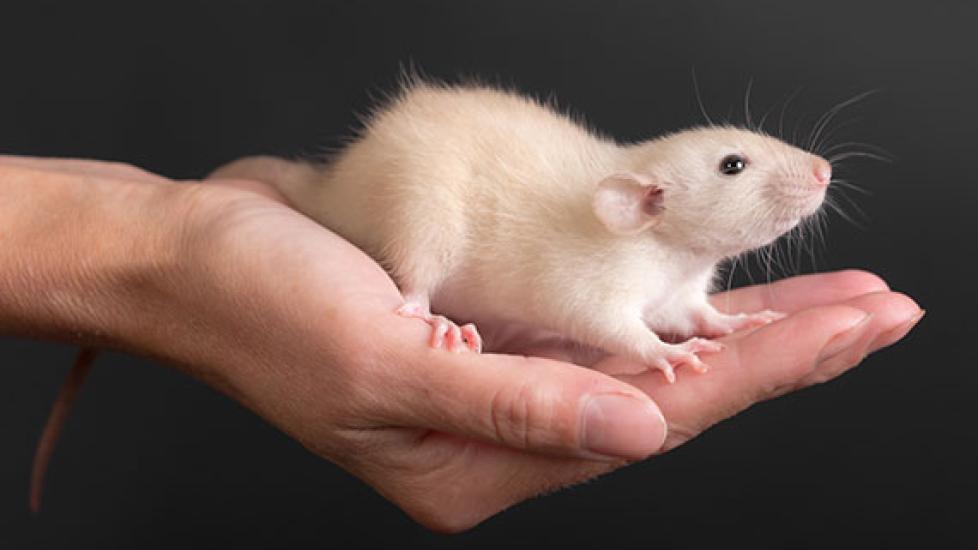What's Not to Like About Rats?
I love when a scientific study proves what I’ve been saying for years. Rats are cool. OK, that’s not exactly what the study shows, but it’s pretty interesting nonetheless.
Whenever I’m faced with a client inquiring about the wisdom of bringing a small mammal like a hamster or gerbil into their home, somewhere in the conversation I invariably inquire, "What about a rat?" My interactions with pet rats have almost always been positive. They’re social critters that seem to enjoy contact with people, unlike most gerbils and hamsters that tend to tolerate us at best. Rats aren’t likely to bite. They are bigger and more robust than many pocket pets, while still being a manageable size that makes caring for them relatively easy. They also tend to live longer than hamsters and gerbils, which is a plus after you realize just how neat your rat is.
What’s not to like? Some people just can’t get over their reputation as vermin, but in fact modern pet rats are less likely to carry a disease that can affect people than are many other species of animals. Can’t stand the beady red eyes of albino rats? Get a "fancy" rat. Some have truly beautiful coloration and liquid brown eyes. Does the naked tail freak you out? Sorry, can’t help you there.
Back to the study. Scientists at the University of Chicago wanted to test whether rats were capable of behavior that is intended to benefit another individual (i.e., altruism). They tested whether the presence of a trapped cage-mate would bring about a desire to help in other rats; in this case whether the "free" rat would open the restrainer door and set its cage-mate free.
The answer is "yes." Over time, the free rats learned to open the doors, after which both rats would run around excitedly. The researchers also tried to make sure that the free rats weren’t simply letting the trapped rats out because they wanted company. They ran another experiment where rats could set each other free, but the individuals remained separated afterwards. The free rats still helped out their trapped cage-mates. Rats were also just as likely to free their cage-mates as they were to open a restrainer that contained chocolate chips. And over 50 percent of the time they shared the chocolate, even though they could have eaten it all first and only then released their cage-mates.
Another finding: Female rats were more likely than males to become door openers, and learned to do so more quickly, which, to quote the authors, "is consistent with suggestions that females are more empathic than males." Sorry guys.
The researchers have even made a video. Take a look at it. Watching the rats in action is a lot of fun, and the commentary is illuminating.

Dr. Jennifer Coates


